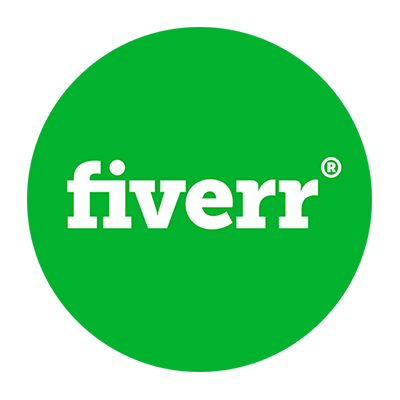My Side Projects Have Made Over $100K In Under 10 months
Hello! Who are you and what business did you start?
Hi I am Misterr Pink (@misterrpink1) I like to build cool projects solo, and grow them. My most recent build is Lychee, a data platform that is a new and evolved form of traditional spreadsheet tools like Excel that were built in the 20th century.
I built my first version of Lychee in 24 hrs less than 2 months ago. Now Lychee has over 11,000 users, a tonne of traction and over $10K in MRR.
Other than Lychee I have also built DiFunk an AI platform where you just describe your project and the AI generates a design for you. The goal is to let users build full projects with AI but of course that is a long way away. I have a handful of other projects that I have linked to below.
Combined from all my solo projects, I have generated over 100K in under 10 months.
Over the past 10 months I have launched 5 projects on Product Hunt.

And at least 8 projects combined not listed on PH.

Katsu:


What's your backstory and how did you come up with the idea?
I am always building projects. It’s just what I like to do. I also like to look at price charts, or do some quick data analysis on some arbitrary data. I’m just an overall nerd. So it always bothered me how many hurdles I have to cross to just chart something quickly.
You have to open up excel.
Oh opps I haven’t paid my excel license.
Let's look for a free tool.
Ok google sheets.
Now I need to figure out how to chart something from data.
The whole process annoyed me.
But if over 15 years of startup experience…and 2 years of non-stop product launches …
Has taught me anything at all, it doesn't just build something you need.
My rule before building anything is I absolutely need to validate the idea before I even write a line of code. So Lychee was always a project that I did not pursue.
One day, my girlfriend started a new job. Where she had to work with more data than usual. She went to college, but she was a prime example of the everyday employee who needs to work with data. She has computer experience, but no data analysis experience. My girlfriend was a perfect focus user for a specific category of people, which ends up being a very large fragment of the market that is currently underserved.
She opened up excel. Asked me for help. Now I learnt excel when I was in 5th grade, in the early 2000s. I know I am good with Excel. I am a data analysis expert. I did econometrics, financial economics, and even conducted research in epigenetics in a research lab at one point in my life. I know this stuff.
But then I had to teach my girlfriend how to use Excel.
Let me tell you, the learning curve to being able to competently use a spreadsheet tool is insane. I knew I had something to work with. So I went to work.
In 24 hrs I coded up a basic platform that allows you to upload data and generate a chart.
I gear my launches to Product hunt so here was the first ever promo video I released for Lychee:
At this point itself, pre launch stages Lychee was generating revenue.
March 6th was my first internet dollar earned with Lychee.

Take us through the process of building the first version of your product.
My 1st iteration of the project is ruthlessly minimal.
I’ve made the mistake of taking years to launch and … crickets…
I’ve also been cofounder in teams where we have millions in funding but we are so nervous to fully launch a product to market because of fear of failure. But over the course of the past year or so I forced myself to launch more and reduce the iteration cycle.
For Lychee I had actually written some table and charting code logic for another project of mine.
I then built a basic frontend using repurposed code.
I kept the interface super minimal.
Upload your data:

Get a grid of your data to look, sort, etc.

Get a chart

And that is literally what I showed in my promo video too.
The frontend was just React. Running on Next. Backend was just Mongodb. And payment is using Stripe No-code checkout.
I blitzed through the build in about 24 hrs, with breaks, sleep, exercise, etc.
Describe the process of launching the business.
I have a simple step by step formula to launch my products. I’ll eventually make a youtube video or a full article on it.
But in broad strokes:
Step1:
I have a few platforms I register my company, domain, etc on. These include Linkedin, Crunchbase, Facebook, Google business, Pinterest, etc.
Basically it doesn't take much effort, and these are considered Foundational Backlinks. They basically let Google know you exist.
Step 2:
My projects are often AI based. So I list Lychee on AI boards like There Is an AI for that (TAAFT), openaitools, future tools, etc. Some of these are paid. Depending on my mood I pay, sometimes I just don’t feel like pulling out the wallet.
I don’t spend much here, maybe 250-350 at most.
Step 3:
I like to engage with my audience. I post on reddit, on relevant channels. If I am comfortable with certain groups, or discord channels I ask for feedback.
I post to twitter throughout the build.
Here is my first post about it:
And here is where I announce a listing on an AI board:
At this point traffic is already growing. So I know my project is validated.
I go back and make tweaks while marketing the project and getting it ready for a Product Hunt launch.
I also took some time to improve the copy.
Here I wanted to learn how it was done, so I actually hired a professional copywriter.
I learnt how he writes things. And this experience has been invaluable in seeing how important good copy is in the whole process.
The art of being able to communicate precisely what you want to your intended audience is invaluable in entrepreneurship.
The best way I have been honing this beyond hiring the copywriter expert, has been to observe which tweets are most successful.
Ignore the noise, and the random tweets like “look between q and c on your keyboard”.
What you will find is the most authentically successful tweets are able to concisely communicate effectively.
Obviously books and blogs are good too, but on your website you just have 1 line to get your message across. So, twitter ends up being the best resource for inspiration.
Step 4:
Where I would make some blog posts, or short form videos, or youtube videos, about building the project. But I have yet to fit this into my workflow.
At this point it ramps up to Product hunt.
Make the announcements on Twitter:
Actually before launching on Product Hunt I employed an interesting strategy for Lychee.
I did what I like to call a “throw away launch” .
I have another larger energy trading project that I build that serves real large business customers, and the government. So my main project takes up a lot of my focus. So I can’t be perpetually on twitter keeping the algorithm warm. Same thing with everything else on the web.
So, to get the juices flowing, I did a product hunt launch of another project of mine called “Free The creator”
The launch as expected went abysmally:
However this is called a throwaway launch for a reason. It helps me get the dry run of a launch out of the way.
It warms up my email audience of about 20,000 previous users of my previous projects who know me as MisterrPink, the guy that keeps releasing projects, some of which happens to be useful for them.
Of course I have niche specific audiences as well. If I am targeting my NFT, web 3 audiences I have my users from projects like Bito now renamed to DiFunk.
A lot of my user base loves to try new projects and give me feedback on what worked and what didn’t. But coming back to the story.
My launch of FreeTheCreator, didn’t get much traction.
But that’s ok, because my follow up launch of Lychee, got a lot more buzz.
A lot of web presence is being present.
Finally, I launched on Product Hunt. Which, well, went fine, but wasn’t all that it's chalked out to be.
But keep in mind my whole lead up to my Product Hunt Launch.
Well all of those days, compounds.
Everything compounds.

Red marks the timeline of where we are in Lychees growth.
All the while I am converting, but nothing insane has happened yet. I am actually underwhelmed with the response I got. It was good, and a nice traffic spike, but nothing crazy.
So I went back to work: Kept churning out features, marketing, creating content.
I track users with Microsoft Clarity:
My top user revisited lychee 63 times, and I recall the session durations were over 10 mins.
This showed me that people were getting value from whatever I had built so I kept pushing along.
By Mar 24th I had made $1500 in rev 4458 page visits and 200 registered users
The project so far has cost me less than $400 and 24hrs to build.
I think we are in a new era of business, where solo and indies and small teams can have crazy impact. I am fine taking 10% of their market share. Solo. Which ends up being insane.
Since launch, what has worked to attract and retain customers?
So this is where we come to all the work I had put in in the launch. I continue to place Lychee in directories where it's relevant. I continue to post about Lychee and what I have built.
My one of my biggest marketing tools is posting about building:
And I share snippets of my life that people seem to enjoy. Things as small as buying a whiteboard:
Even problems that I face:
(the only thing I am missing is consistent short form content posts and youtube videos. If I can fit this into my pipeline I’ll be on a whole other level)
Reddit, Twitter, Niche Directories, Continue to release new features, shoot email updates to my audience.
You don’t need another course. You don't need to go to college. You don’t need anything crazy. Just figure out what is the minimum you need to do to get your product in front of an audience.
All of this has compounding effects which I did not even realize would happen.
I also decided to let everyone know that prices are changing. Increased from 29.99 to 69.99 for lifetime purchases and monthly/ annual and I added a paywall, letting everyone publicly know about my experimentation:
I implemented Promote Kit to use for my referrals, which I also marketed by making an announcement:
Currently I give 20% of the sale so 20% of 69.99 to my referral partners.
But they have been awesome, so I am moving up to 40% to incentivise them even more (this change should be in effect by the time this article is published)
Either way, I am churning out work. Code and marketing. I am observing my beta users and improving the interface and features.
One day I woke up to my phone notifications going off the hook.

I had no idea what happened. I was making money.
I was so busy handling requests and making sure everything was ok with the system, that I couldn't track the source very well, it was all coming from random places.
Many days later, I started understanding the pattern.
My growth had skyrocketed literally exponentially, because of all the work that compounded from my launch.
Bloggers were starting to organically pick up traffic.

All of these were random articles, blogs, etc random things that were mentioning Lychee.

I wasn’t paying for this.
It was just happening.
Through just organic reach, I got contacted by enterprise clients.
So now I handle enterprise clients as well.
They want the tools, but dedicated to themselves.
So all I have to do is spin up a quick dedicated db, dedicated AI, for them, and boom it boosts my base MRR significantly.
I don’t go out and reach out to clients. Because Enterprise pays higher tickets, but it's one off and requires more work. They seem to find their way to Lychee when they need to.
I like to focus on my everyday users, because literally anyone who is not a power user of Excel, should be using Lychee.
Which is 99% of the population of people who work with data.
I am on a rampage with Lychee, haha.
I wanted to and want to work with micro influencers, but I need to get approved on all these listings, and it's not the easiest thing to do. So I just have not implemented it. I do hope to in the near future:
Launch extremely fast, as cheap as possible and validate.
How are you doing today and what does the future look like
It's still juggling multiple projects today.
Lychee is going strong. I mean it's April 25th, when I am writing this. It has not even been 2 full months since Lychee’s soft launch and we are already at 11K users.
Going through all of this solo made me realize some very simple math.
If I can get 11K users to fully convert to paid users (ignore enterprise clients)
That is 11,000 * $10/ month = 110,000/ month
That is $1,110,000 ARR
No VC money, no external investors, no headaches.
I realized that I am at the point in Lychees lifecycle where PMF is validated.
So as long as I listen to users carefully, implement amazing features, and double down on the product, I am guaranteed to get Lychee to some insane level.
I think we are in a new era of business, where solo and indies and small teams can have crazy impact.
I don’t need to do weird things like blitzscaling or growth hacking.
I don’t even need to compete with Excel or Google SHeets. They have giant expenses that they have to wrestle with.
I am fine taking 10% of their market share. Solo. Which ends up being insane.
Side Project Marketing Strategy
A new strategy that I have actually come up with is the Side project launch strat.
As we speak today I have a product hunt launch going for a mini project of mine: Katsu
I am not even ranking on the featured section right now.
It’s 5:11pm PST, which means I still have 7 hrs to rally the troops and market the launch more.
But the thing is it’s not about winning Product Hunt.
Getting 1st place is awesome. And getting to the featured place is awesome too.
Because it’s marketing.
And they place you in newsletters which is more exposure
But I don’t stress too much.
Check out the url.
And here is the funny promo video I made:
Katsu is basically a tool built on top of Lychee’s infrastructure.
It's a side project that is actually an awesome marketing tool for Lychee itself.
This will drive traffic.
I basically say this opportunity when another big #buildinpublic developer tweeted that it would be awesome to have a tool like katsu. Something that creates Bento type presentations, very easily. So that people can share some stats on Social media.
Lychee has a lot of applications.
You can connect your directly to Twitter, Instagram, Strava, GitHub, Stripe, Quickbooks (or you can request new ones and community will vote on which ones they want built first)
You can make all sorts of charts.
You can use AI to do crazy analysis on things you never thought of. Our ability to infer insights from our data is limited by our statistical analysis ability. Our technical ability limits how much info we can glean. That is where Lychee’s AI comes in.
Combined with its beautiful presentation capabilities and its ability to host your presentation on an endpoint like: <yourname>,lych3e.com
So each of these features is a tool that can be packaged and marketed as a mini tool in the sama capacity.
Each feature can have its own youtube video
Each feature can have its own guide.
But here is the magic.
I flipped the script.
- I have a community vote on features I should build. Although I have put a disclaimer that I build whatever I feel like
But more importantly;
2) I use tools like VidIQ, and Tiktok search bar to see what people are searching for pertaining to data, spreadsheets, and ability to do data analysis.
This is my initial validation step these days.
I only build something that people are already looking for answers for.
So in about a day or 2 I am going to have a new product launch, youtube video, tiktok short, twitter storm, blog post, linkedin post, you name it it will be everywhere:
“How to find the best times to tweet on Twitter”
Since Lychee lets users directly connect Twitter, without coding a single line of code, the user can pull in all of their competitors' tweets, their own tweets and tweets with given keywords. Then they can visualize and also use Lychee AI to let them see what tweet times are best
They can then plug this as a “module” into their dashboard so they have a live feed of when it would be best to tweet, based on when their target look-alike audience is online and when their competitors' tweets were most successful.
The things you can do with Lychee are pretty crazy.
So that is basically the marketing strategy.
It's super unique, because the product is unique.
It helps to build a unique project.
Alongside Lychee
I am ramping up Difunk.
In about a week or 2 I will be launching:
- A way to generate NFT art using text prompt
- Then use your voice or commands to edit the art
- Define your collection rules
- Finally DiFunk will auto generate the smart contract for you
- You can also run a preliminary security audit over your code to make sure it's all secure
- And finally you can distribute p2p directly from Difunk
Should be pretty big.
But I basically just keep launching projects, because that’s what I like to do.
And I basically outlined my perpetual launch strategy above, haha.
So as long as I cycle through this, and I don’t lose my passion for building things, I know I can quickly validate ideas. If an idea does not get dollar conversions by my prelaunch I drop it or pivot fast.
You just gotta be ruthless with yourself and your ideas.
No point coddling them. Some ideas are just bad.
So you gotta launch fast and validate fast.
Through starting the business, have you learned anything particularly helpful or advantageous?
Yes, launch extremely fast, as cheap as possible and validate.
I actually learned this when I did my first launch of Ditunk. Back then it was called Bito.
In the past every single team or project or mine, we would spend forever raising capital, getting a team together, deciding whether to do “waterfall” or “agile”, setting up jira, pitching investors (who also have no clue for the most part). The last consideration was getting products in front of users.
Then I figured, screw it. I am too lazy to build a full project.
I already had spent time building my own AI model to generate images based on word prompts. I was too lazy to build an interface.
So I made a typeform survey.
And added the built- in Stripe integration.
The typeform basically said “describe your project here” and submit $7.
And I soft launched on some reddit forums, twitter, etc. And published what designs it could generate.
And that is all it took.
People paid to get designs generated.
So I took the request manually, and plugged them into my engine and gave them back their designs.
That was it.
Validation step completed.
It made sense to confidently keep building out the project.
So the most important thing I have learnt is build as fast as possible. And make sure people are willing to pay for the core service you are offering.
Then you play around with the product, and pricing to find the sweet spot.
What platform/tools do you use for your business?
Vercel for deployment and hosting
Currently godaddy for domains but moving to some other services people have recommended (namecheap or porkbun) I haven’t tried either but I did a survey lol:
Newsletter: I currently use ConvertKit, but am not feeling the vibes. So moving over to sendpulse.
Socials: Twitter, Tiktok, youtube, instagram, linkedin
Stripe for payments
I might do lemonsqueezy for affiliate marketing
Along with promotekit
But it depends on which one happens to help me more
I noticed Lemonsqueezy has this capability that if someone refers to the user, and the user closes the browser, and comes back a few days later, the referrer still gets credit.
I like the platforms to be fair, so that feature is a big plus as to why I would set up Lemon Squeezy affiliates.
Tim Ferriss' podcast from 2015 helped me get into certain mindsets. I don’t particularly have a favorite, but it was very influential at a young age for me.
I love Rick Ruben’s book The Creative Act: A way of being. And everything Rick Ruben says. It helps me realize how creative the act of building a product is. Yes coding is technically technical because I guess you are on a computer. But I don't see much difference in creating art from creating a project.
One could say, building a product is much more creative that playing sheet music in a rote manner even though the act of playing an instrument is creative. It's how you approach what you are doing.
Reading a page of Rick Ruben’s book in the morning and meditating sets me in the zone for getting some amazing work done. Focused.
Overall Twitter has been an amazing resource. The #buildinpublic community has been huge. You kinda have to ignore the noise. And look at what patterns exist in how the successful indie hackers built their project. It’s helped me formulate my system for making sure my projects succeed.
Honestly at this point I think I got my pipeline flow.
I can now build the craziest projects I could imagine, and I know that I can get it in front of enough people to do a litmus test on whether or not it will succeed or fail.
Advice for other entrepreneurs who want to get started or are just starting out?
Just build. Test. Iterate.
Whatever it is you are building.
Even if it's clothing.
You don’t need another course. You don't need to go to college. You don’t need anything crazy
Just figure out what is the minimum you need to do to get your product in front of an audience.
This determines your base conversion.
If no conversion, either your messaging is wrong, you don’t know your audience, or your product sucks.
Then decide on which of the three you want to fix.
Once you know where your audience exists, you know your messaging and you have a product they want…
Unless you self-destruct, you will succeed.
And trust me I have self-destructed a few times in the process.
It's all good.
You can’t fear failure.
Just do it. Build it. Push it. Launch it. Adapt.
Try to spend as little money as possible. To prove your project.
Are you looking to hire for certain positions right now?
Currently not really. I love the solo project life.
But I am literally always open to hearing people out. If you can convince me that I need you that I am down to work with you. I would prefer people who see how big all these projects will be and come work for equity.
I am thinking of setting up some kind of Lab here in San Diego.
My Twitter DMs are always open (@misterrpink1)
Where can we go to learn more?

Download the report and join our email newsletter packed with business ideas and money-making opportunities, backed by real-life case studies.

Download the report and join our email newsletter packed with business ideas and money-making opportunities, backed by real-life case studies.

Download the report and join our email newsletter packed with business ideas and money-making opportunities, backed by real-life case studies.

Download the report and join our email newsletter packed with business ideas and money-making opportunities, backed by real-life case studies.

Download the report and join our email newsletter packed with business ideas and money-making opportunities, backed by real-life case studies.

Download the report and join our email newsletter packed with business ideas and money-making opportunities, backed by real-life case studies.

Download the report and join our email newsletter packed with business ideas and money-making opportunities, backed by real-life case studies.

Download the report and join our email newsletter packed with business ideas and money-making opportunities, backed by real-life case studies.













